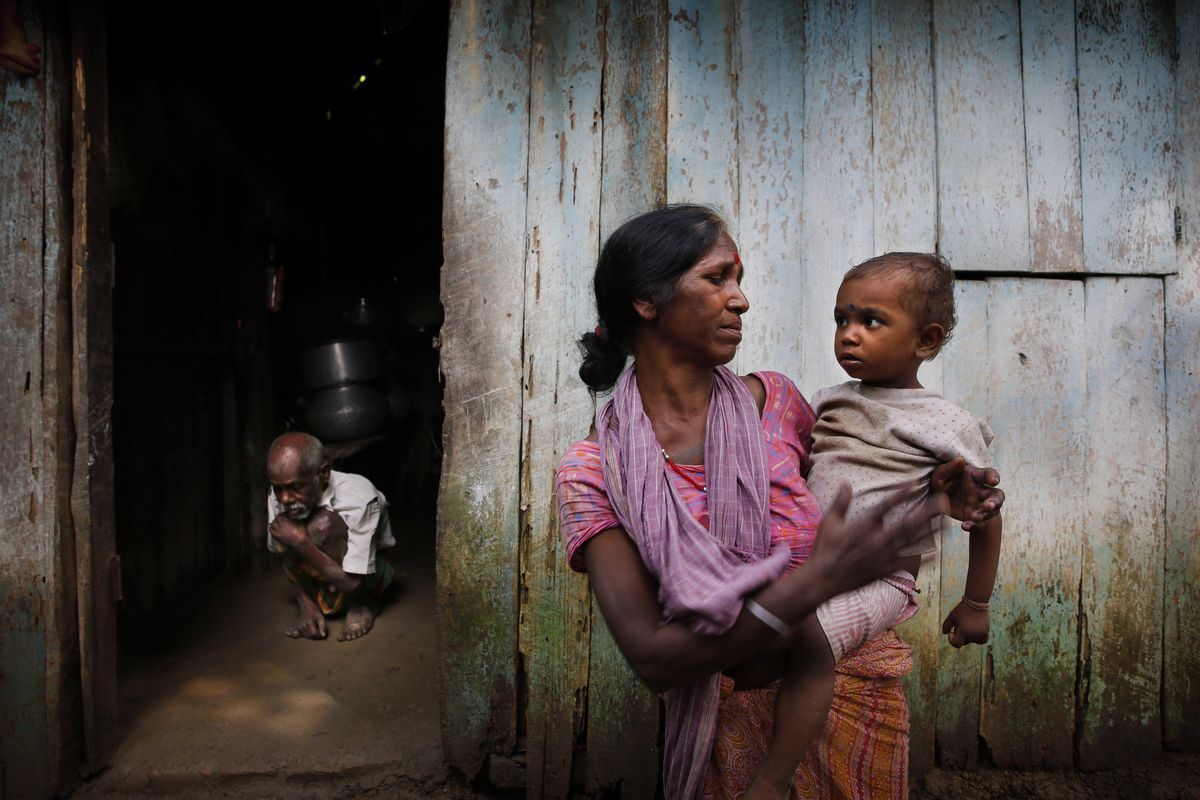Death, hunger hit workers after tea estate closures in India

BUNDAPANI, India – Death arrived soon after the Bundapani tea estate closed last year.
Deprived of health care and food rations, workers who had been scraping by on $1.50 per day were left with nothing. Bundapani’s owner failed to raise the alarm as hundreds of workers slid into catastrophe.
“I have become like a beggar,” said Ramesh Mahali, 59, struggling to stand. He has been unable to properly feed himself or his family since the closure. His wife, Puliya, seeming 20 years older than her 50, sat emaciated on the floor.
Seven workers died in the two months it took the government to become aware of the crisis, and the toll has continued to climb since. In the past year, at least 69 tea workers have died across Bundapani and four other shuttered tea plantations in West Bengal, according to the Right to Food campaign, an advisory committee to the Supreme Court that is monitoring the deaths.
More than 16,000 people have been left in extreme poverty at the estates, spread across the Dooars plains below Darjeeling, source of the famous tea. The government has launched emergency food and medical relief, but conditions remain grim. Despite the aid, 14 people at Bundapani alone have died in the past eight months, either from malnutrition or inadequate medical care.
If the plantation had not closed, “these people would not have died,” said Anuradha Talwar, a Right to Food activist.
In estates visited by the Associated Press, many workers were clearly underfed and a number suffering from diseases commonly related to malnutrition, such as tuberculosis. The food aid – 2 kilograms of rice per week – falls below standard rations at refugee camps.
The workers’ situation highlights how eastern India’s tea industry has changed little since colonial times. The government has done little to penalize owners who abandon their workers, who in practice often depend on estate-owners’ goodwill for survival.
“This is kind of the last hangover of a straightforwardly colonial relationship,” said Harsh Mander, special adviser on food to India’s Supreme Court.
Established by the British in the 1830s, the plantations became an essential image of empire, relying on indentured laborers. Workers now have the right to leave and access to free primary education, but their dependency on the estates for housing and food means that, in practice, little has changed.
There are tea plantations in other Indian states, including Assam and Kerala, but West Bengal’s are widely seen as having the worst labor conditions. Most of its 200,000 tea workers are paid $1.50 per day, below the U.N.’s $2 a-day threshold for extreme poverty.
To survive, workers rely on additional benefits from the plantations, including food, housing and medical care. After a closure, the health care and food rations disappear.
The five closures are being largely blamed on mismanagement. Although West Bengal’s tea industry has declined recently, most plantations are functioning normally.
Owners have been prolonging the closures by engaging in lawsuits that prevent their plantations from reopening under new ownership. India’s clogged court system means these challenges can take a decade.
Bengal’s chief minister has asked the national government to take over closed estates using legislation that allows the seizure of unproductive plantations. M.D. Rizwan, the joint labor commissioner for West Bengal, said the regional government is also urgently negotiating to reopen the estates.
Sunil Bakhshi, 71, who recently retired as chief clerk at Surendranagar, said all the workers can do is wait.
“We are helpless,” he said.